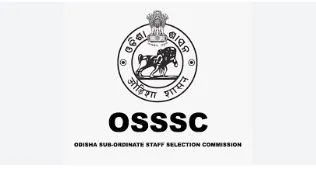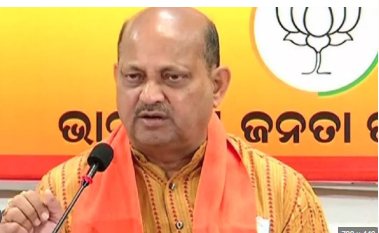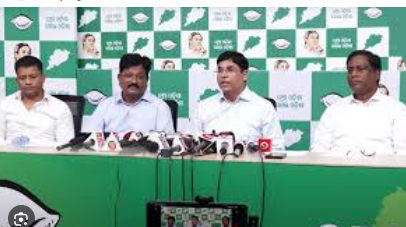

PRADEEP KUMAR SUBUDHI
Bhubaneswar, May 20: The debate over reservation for backward communities has once again taken center stage in Odisha, stirring intense political activity reminiscent of the Mandal Commission era that reshaped India’s socio-political fabric over three decades ago.
In a significant move, the ruling Bharatiya Janata Party (BJP) in Odisha recently announced its decision to implement an 11.25% reservation for Socially and Educationally Backward Classes (SEBC) in educational institutions, restricted to non-professional courses, but now the demand has extended to medical, engineering, and other technical streams.
This decision has triggered a strong reaction from opposition parties, particularly the Biju Janata Dal (BJD) and the Congress, who have demanded the full implementation of a 27% reservation for SEBCs in professional courses, citing it as a constitutional right that has been long overdue in Odisha.

On Tuesday, Odisha BJP president Manmohan Samal addressed a press conference confirming that the party has recommended a uniform 11.25% reservation across all educational domains, including professional courses like engineering and medicine. He emphasized the BJP’s commitment to safeguarding the constitutional rights of SEBCs and said that the state government has been urged to swiftly implement the policy.
Samal pointed out that the overall reservation structure in Odisha now comprises 22.5% for Scheduled Tribes (STs), 16.5% for Scheduled Castes (SCs), and the proposed 11.25% for SEBCs, ensuring the total reservation remains within the 50% cap mandated by the Supreme Court.
Political Blame Game Begins-
The BJP leader did not miss the opportunity to target the opposition. He blamed the Congress and the BJD for neglecting SEBCs during their combined 24 years in power, accusing them of hiding behind legal pretexts and court rulings to delay reservation implementation. He went further to allege that historical opposition to backward class reservations stemmed from the leaders of these parties.
Samal specifically cited former Odisha Chief Minister Biju Patnaik, Janata Dal leader, as the first state leader to challenge the reservation system in the Supreme Court. He also recalled former Prime Minister Rajiv Gandhi's resistance to the Mandal Commission during parliamentary debates.
He contrasted this legacy with the BJP’s current approach, highlighting initiatives such as the Modi government’s ongoing preparations for a nationwide caste-based census and the proactive steps being taken by the Mohan Majhi-led Odisha government to ensure reservation for backward communities in education and employment.
Opposition Insists on Full Quota-

Despite welcoming the BJP’s recent announcement, opposition parties remain firm in their demand for a 27% quota. Senior BJD leader and former minister Arun Kumar Sahoo said that the BJP’s support was a “step in the right direction,” but emphasized that anything short of the full 27% quota is a disservice to the SEBC population, which makes up more than half of Odisha’s total population.

Echoing similar concerns, Congress leader and former Union Minister Srikant Jena stressed that SEBCs constitute about 54% of the state’s population and yet have been denied proportional representation in education and jobs for the past 35 years. He stated that the denial of 27% reservation amounts to a violation of constitutional provisions.
OBC Organizations Intensify Pressure-
Civil society groups and community organizations have also joined the fray. Rabi Behera, chairman of the Odisha OBC Forum, has written to Governor Haribabu Kubhampati demanding that the state should adopt the constitutionally sanctioned 27% reservation for OBCs in both education and public employment, including in prestigious professional streams like medicine and engineering.
Behera criticized the Odisha government for being the only state in the country that failed to implement the 1993 OBC reservation directive. He claimed that successive governments in the state have historically neglected OBCs.
Similarly, Odisha OBC Mancha president Sankar Patra criticized the government’s decision to extend reservations to SEBCs instead of the OBC category, terming it a political gimmick aimed at appeasing the electorate. “OBC people in Odisha have been historically ignored, and today’s political class is continuing the same trend by resorting to tokenism rather than genuine empowerment,” said Patra. He argued that the current moves by political parties are more about vote-bank politics than addressing longstanding injustices.
A Brewing Political Battle-
As the BJD prepares for a protest demanding full 27% reservation, the BJP’s announcement of 11.25% reservation for SEBCs in professional courses appears to be a strategic move to blunt opposition criticism. However, the demands from community leaders and the opposition suggest that the issue is far from settled.
With OBCs and SEBCs constituting more than half of Odisha's population, the political implications of this reservation debate are significant. How each party navigates this sensitive issue could have a lasting impact on voter sentiment in the months ahead, especially as caste-based identity politics resurfaces as a potent electoral force in the state.